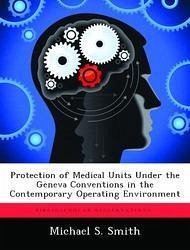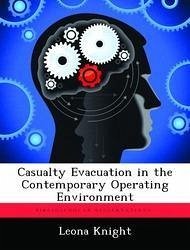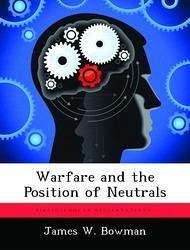
Protection of Medical Units Under the Geneva Conventions in the Contemporary Operating Environment
Versandkostenfrei!
Versandfertig in über 4 Wochen
53,99 €
inkl. MwSt.
Weitere Ausgaben:

PAYBACK Punkte
27 °P sammeln!
The Geneva Conventions, along with its Additional Protocols, represent the fundamental documents on which the Law of Armed Conflict (LOAC) is established. Originally established under the premise of conventional warfare, these documents have also been the cornerstone for U.S. Army doctrine in providing direction to its forces in adherence to the LOAC. Currently, the Global War on Terror (GWOT) has put many of the medical units in a dilemma; trying to care for the wounded in combat while, at the same time, attempting to provide adequate force protection for themselves, their patients and their ...
The Geneva Conventions, along with its Additional Protocols, represent the fundamental documents on which the Law of Armed Conflict (LOAC) is established. Originally established under the premise of conventional warfare, these documents have also been the cornerstone for U.S. Army doctrine in providing direction to its forces in adherence to the LOAC. Currently, the Global War on Terror (GWOT) has put many of the medical units in a dilemma; trying to care for the wounded in combat while, at the same time, attempting to provide adequate force protection for themselves, their patients and their missions essential assets. To mitigate this, AMEDD units mostly depend on other units to meet theater directed force protection requirements, especially in the areas of base defense and security escorts. This dependency has many drawbacks. For example, medical ground evacuation missions are often delayed due to the medical elements having to wait for adequate security escorts. In addition, there are other downsides to this dependency for external security, such as synchronizing communications and battle drills, and utilizing standard operating procedures, which is difficult to do with elements from different organizations. The intent of this thesis is to explore the possibility that the treaties of the Geneva Conventions, and/or the corresponding subordinate layers of policies from U.S. governmental agencies and the U.S. Army, may be outdated and/or over-restrictive with regards to warfare as it is being conducted on today's modern battlefield, the Contemporary Operating Environment (COE). Specifically, this thesis will explore the possibility of allowing medical units to maintain and employ weapons of increased capability, such as machine guns and crew-served weapons, and the conditions and limitations under which such weapons would be utilized.














